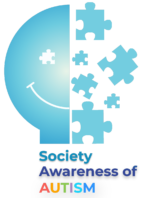
Studies indicate the rate of autism is rising, but the causes are not well-understood. Scientists have found rare gene changes, or mutations, as well as small common genetic variations, have an impact on autism. Things such as parental age and prescription medications consumed during pregnancy may be involved. A growing area of research focuses on the interaction of genetic and environmental factors. For example, a woman’s exposure to harmful contaminants during pregnancy may trigger a genetic mutation leading to autism in her child.
No link has been found between autism and vaccines, including those containing thimerosal, a mercury-based compound.
- Genetics: Several different genes are considered to be involved in autism spectrum disorder. For some children, ASD can be associated with a genetic disorder, such as Rett syndrome or fragile X syndrome. For other children, genetic changes (mutations) may increase the risk of autism spectrum disorder. Still, other genes may affect brain development or the way that brain cells communicate, or they may determine the severity of symptoms. Some genetic mutations seem to be inherited, while others occur spontaneously.
- Environmental factors: Researchers are currently exploring whether factors such as viral infections, medications or complications during pregnancy, or air pollutants play a role in triggering autism spectrum disorder.
Risk Factors
The number of children diagnosed with autism spectrum disorder is rising. It’s not clear whether this is due to better detection and reporting or a real increase in the number of cases, or both.
Certain factors increase a child’s risk for autism and it affects children of all races and nationalities. These may include:
- Sex of the child: Boys are about four times more likely to develop autism spectrum disorder than girls are.
- Family history: Families who have one child with autism spectrum disorder have an increased risk of having another child with the disorder. It’s also not uncommon for parents or relatives of a child with an autism spectrum disorder to have minor problems with social or communication skills themselves or to engage in certain behaviors typical of the disorder.
- Medical conditions: Children with certain medical conditions have a higher than normal risk of autism spectrum disorder or autism-like symptoms. Examples include fragile X syndrome, an inherited disorder that causes intellectual problems; tuberous sclerosis, a condition in which benign tumors develop in the brain; and Rett syndrome, a genetic condition occurring almost exclusively in girls, which causes slowing of head growth, intellectual disability and loss of purposeful hand use.
- Premature babies: Babies born before 26 weeks of gestation may have a greater risk of autism spectrum disorder.
- Advanced parent age: There may be a connection between children born to older parents and autism spectrum disorder, but more research is necessary to establish this link.
